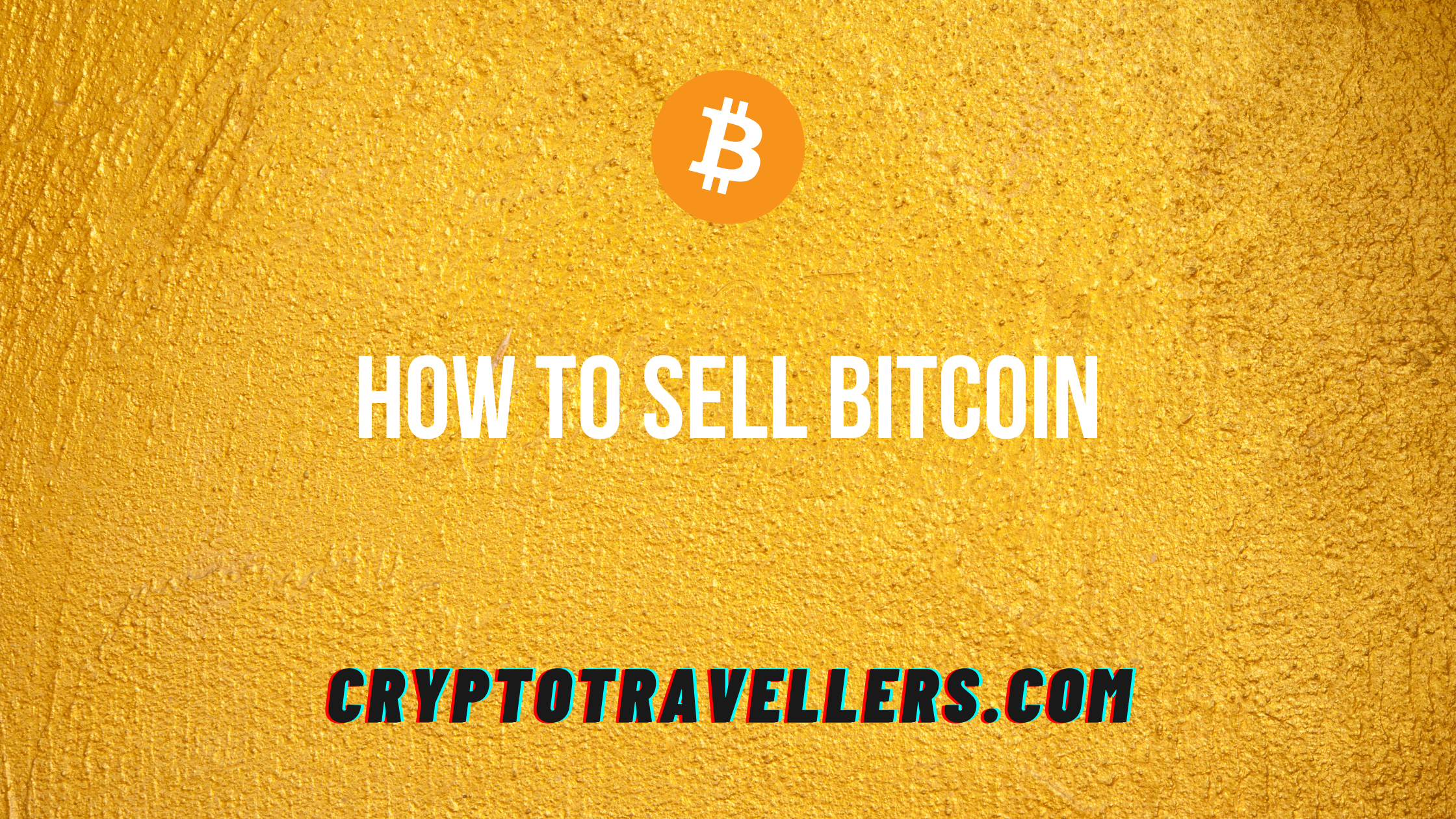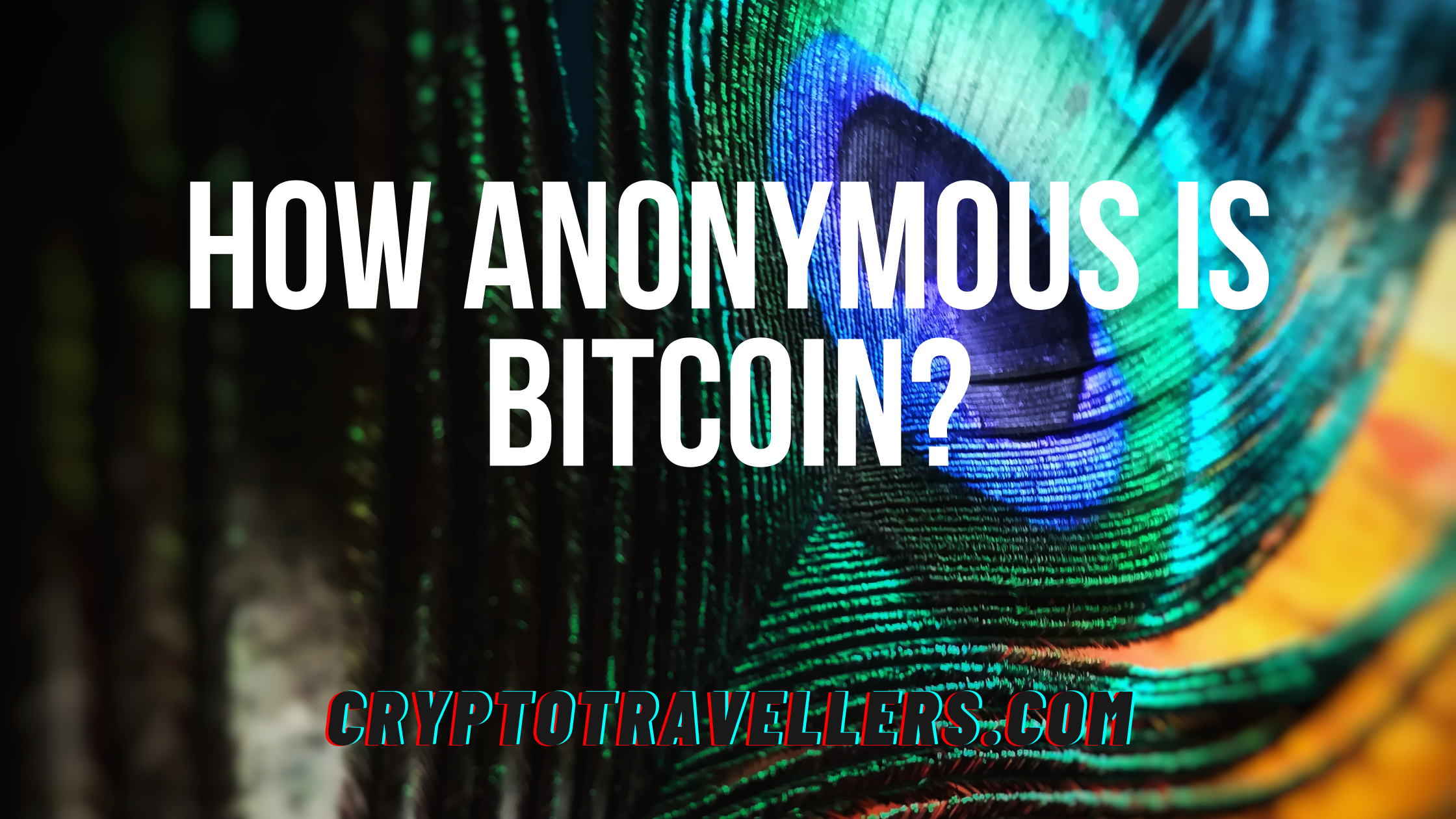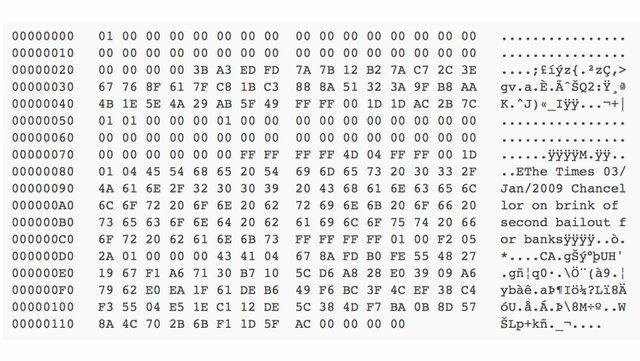
How to Sell Bitcoin in the UK
Disclaimer: This post contains affiliate links. Do you want to sell your Bitcoin? Bitcoin has been around since 2009, and many people have been …

This post contains affiliate links.
Just How Anonymous is Bitcoin? That is the question that has become a hot topic since Edward Snowden slammed Bitcoin’s privacy credentials . Bitcoin has become a popular cryptocurrency in recent years. But is Bitcoin really anonymous? It’s a question that you should ask yourself before investing your hard-earned money into this digital cryptocurrency. In this article we’ll explore the history of Bitcoin and find out how it works to determine if it’s truly an anonymous form of payment or not.
“Bitcoin is really failing comprehensively on the privacy angle,” - Edward Snowdon
To start off with Bitcoin’s history: It was created by a programmer under the alias of Satoshi Nakamoto in 2008 and released as open-source software in 2009. The idea behind it was to create a form of currency that’s not tied to traditional banking systems. Satoshi’s Genesis Block referenced the financial crisis of 2009 by quoting the front page of the Times.

This digital cryptocurrency arose from the idea for an independent, non-traditional form of payment and has become a popular means of transferring money online. Bitcoin is not fully anonymous since it’s possible to trace transactions back to their originator through their Bitcoin address.
- Bitcoin is not fully anonymous, but it’s possible to increase anonymity by breaking down Bitcoins into smaller units.
- Bitcoin can be used for online purchases and money transfers between peers without revealing one’s identity (that is, if the transaction doesn’t require verification).
- When crypto coins are spent on a public ledger like. Bitcoin, the digital currency’s true identity is revealed.
- Bitcoin addresses are not linked to any personal information or real world identities.
- There are various ways of generating Bitcoin addresses and they’re all equal in anonymity unless one chooses to disclose their identity by linking them with a phone number, email address or other identifying feature.
Bitcoin is, by design, not as anonymous as one might think. It’s possible to increase anonymity though by breaking down Bitcoins into smaller units. Bitcoin can be used for online purchases and money transfers between peers without revealing one’s identity (that is, if the transaction doesn’t require verification).
A Bitcoin wallet is a type of virtual bank account that allows users to send or receive Bitcoins, pay for goods or save their money. Bitcoin wallets allow you to access your Bitcoin address but not much else about yourself without additional security measures such as encryption and anonymity tools like Tor.
A Bitcoin wallet typically stores the private key which allows you to receive Bitcoins and a public address, for transactions. It can also store one or more passwords that give access to your account with varying levels of security; make sure not to forget them!
We recommend the Trezor Model T in combination with Exodus Wallet to get advanced security across a wide range of cryptocurrencies. See the below video for more details.
Bitcoin transactions are designed to be secure, anonymous and untraceable. Bitcoin has often been linked falsely with criminal activity in the media because it it is perceived as offering a higher degree of anonymity than more traditional currency options. In actual fact, only 2.1% of cryptocurrency transactions were linked to criminal activity.

(Via Chainanalysis )
To create a Bitcoin wallet anonymously, you can use an online tool such as Tor or a VPN to help protect your anonymity when registering for new Bitcoin wallets. You may also want to create more than one Bitcoin address and establish different levels of security in order to obtain the balance that is most appropriate for your needs.
As we have mentioned, Bitcoin is not fully anonymous since it’s possible to trace transactions back to their originator through their Bitcoin addresses.
This means that if you buy something online with Bitcoin and an individual or company has the address, then they can see what coins were transferred from your wallet and how many of them are in there at any given time.
Some ways to protect your privacy include using a different Bitcoin address for every transaction and encrypting the wallet with a strong password. If you’re looking for an anonymous Bitcoin exchange, then there are some currency exchanges which have both transparent and private accounts that allow users to trade without revealing their identity.
Want to buy Bitcoin Anonymously? Paxful is our recommendation. This is a P2P Bitcoin marketplace that connects buyers with sellers to make the Bitcoin exchange fast, convenient, and private
Hopefully this is common sense. Never publish your Bitcoin address online or anywhere else that someone could easily copy it from. Publishing your Bitcoin address on websites and social media for example, is not a good idea when it comes to protecting your privacy!
Bitcoin’s public ledger is not only the world’s most complete accounting of Bitcoin and Bitcoin transactions, but it also provides a level transparency that has never existed before. It reveals information pertaining to when Bitcoins were first mined and who created them. The blockchain records every single transaction ever made in history on Bitcoin’s network. With this information, it is possible to examine every Bitcoin transaction from the time when they were first mined and who created them.
A Bitcoin address is a long string of letters and numbers, which creates an account. It’s not necessarily anonymous to have just one Bitcoin account because the IP addresses are public and can be linked back to any transactions that person has made in their lifetime.
Bitcoin exchanges need a name and an account to run transactions through which is not anonymous at all. Bitcoin miners have their own transactions that they can link back to their IP addresses as well.
Bitcoin and other cryptocurrencies are for the most part, anonymous. They don’t use names or emails. Bitcoin transactions needs a name for every account which is not anonymous at all as the IP address can be linked to any transaction that person has made in their lifetime.
Since Edward Snowden’s revelations back in 2013, we’ve learned that Bitcoin is not quite as anonymous as it seems. With a public ledger system like Bitcoin, all transactions are recorded and available for anyone to see at any given time. This is not anonymous at all. The Bitcoin transaction records are public so it could be traced back to the person that made the payment and their IP address as well.
“Taproot does not fix Bitcoin’s privacy problem, and there are some arguments that it makes it worse by this sort of fragmented address space making a forensic sort of flow analysis easier.” - Edward Snowdon
Many of the coins in existence today are more privacy focused than Bitcoin because they don’t have a public ledger like Bitcoin. There’s Monero , Zcash and Dash that all offer higher anonymity features than Bitcoin but there isn’t one single digital currency with absolute anonymity, although Pirate Chain claims to be as close as possible to this ideal, claiming on its website that it is 100% private send cryptocurrency.
Central Bank Digital Currencies sound interesting when you first hear about them as they appear to be showing that countries at a state level are willing to adopt a “Bitcoin format” of currency. The UK’s proposed CBDC has even been nicknamed “Britcoin ” to show some kind of similarity to its proposed CBDC offering and Bitcoin.
The threat of CBDCs though is very real as they are state controlled. When you hear that China is already testing their Digital Yuan CBDC, you can see where this is going. Governments can not currently track every single transaction we make as we use physical cash. If we migrate to a CBDC style currency then you can expect the gradual removal of physical cash as a method of payment, and a push for the CBDC format of currency. Central banks would be keen to do this and the enthusiasm to kill cash is fairly obvious from certain quarters of the internet .
The issue of anonymity at the moment is not a key factor for choosing a cryptocurrency to invest in at the moment if we are honest. The main reasons for investing at the moment is to make money. People are looking to make the most gains and are willing to put their money wherever it gets the most returns. However, if there was a crackdown on cash and it was removed from the system all together, then there would be an overwhelming demand for coins to adopt more privacy centric features.
If you’re looking for a completely anonymous currency, Bitcoin might not be the best choice at the moment. However, there are other alternatives to Bitcoin that currently provide better anonymity such as Pirate Chain , Monero , Zcash as examples.
Disclaimer: Cryptotravellers or the author are not a financial advisor and the information in this article is not financial advice and should not be construed in this way.

Disclaimer: This post contains affiliate links. Do you want to sell your Bitcoin? Bitcoin has been around since 2009, and many people have been …

What is the environmental impact of Bitcoin? Bitcoin is a digital currency that can be used to buy and sell goods, services or other currencies. …